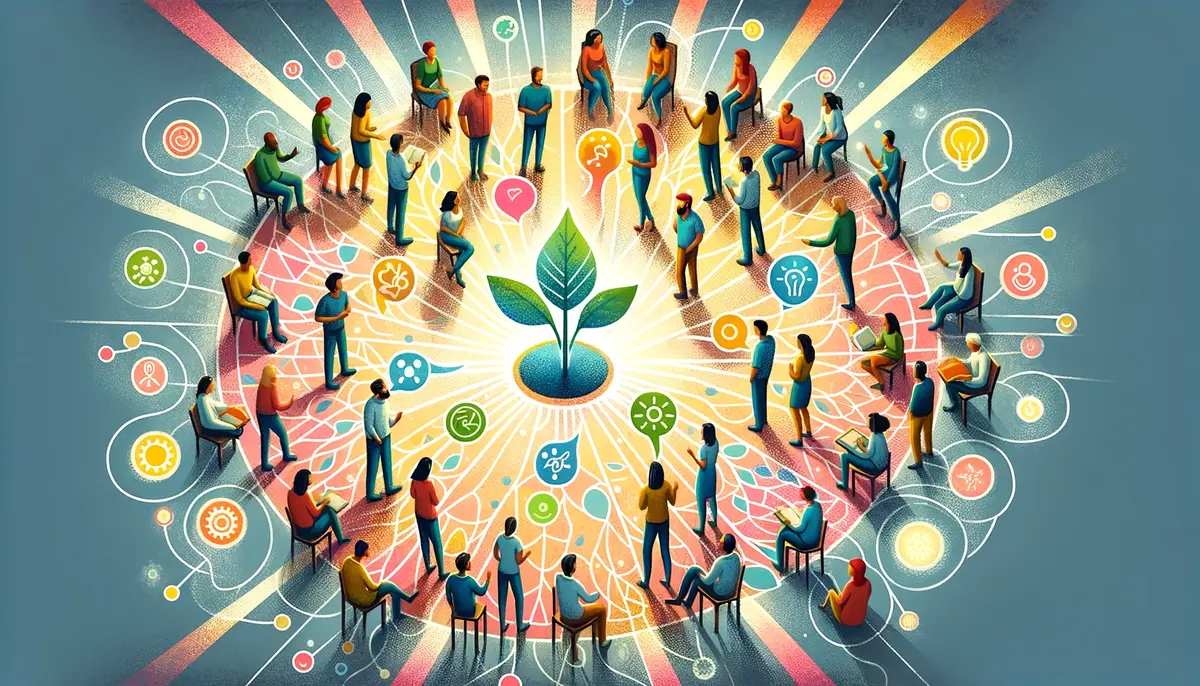TB872: Advantages and disadvantages of CSLS
Note: this is a post reflecting on one of the modules of my MSc in Systems Thinking in Practice. You can see all of the related posts in this category.

I’ve written previously about Critical Social Learning Systems (CSLS) and how I’ve chosen this approach for my End of Module Assessment (EMA) over Communities of Practice (CoP). The CSLS approach involves critical reflection, participatory methods, and adaptive management, all within a systems approach.
What I haven’t done so far is outline the advantages and disadvantages of CSLS, which is what this post seeks to rectify.
Advantages of CSLS
- Holistic understanding of complex issues: unlike more traditional, linear methods of problem-solving, CSLS encourages considering multiple perspectives and dimensions of a problem, leading to more comprehensive and adaptive solutions. This holistic approach helps address complex, real-world issues.
- Enhanced adaptive learning: an emphasis on reflexivity and the inclusion of meta-learning and epistemic learning allows participants in a CSLS to not only learn about the “issue at hand” but also about the process of learning itself and the limitations imposed by their worldviews. This can enhance the system’s adaptive capacity in the face of changing contexts and challenges.
- Empowerment through participation: promotes active participation and dialogue among all stakeholders, recognising the value of diverse approaches to knowledge. This is a democratic approach which can empower individuals and communities, and encourage a sense of ownership and commitment to both the learning process and its outcomes.
- Sustainability of solutions: encourages the development of solutions that are sustainable in the long term by engaging deeply with the root causes of issues (rather than just symptoms). CSLS integrates ethical, ecological, and social considerations, and this helps address underlying systems that generate problems.
Disadvantages of CSLS
- Complexity and resource intensity: engaging in a CSLS can make it a resource-intensive process, requiring significant time and effort from participants. This can be a barrier to implementation, particularly in “resource-constrained” environments.
- Challenges in facilitation and management: skilled facilitation and management is required to successfully navigate the dynamics of a CSLS, with its emphasis on critical reflection, learning at multiple levels, and managing diverse worldviews. This can be challenging to achieve, especially in large or very diverse groups.
- Risk of overemphasis on process: by focusing on learning processes, reflexivity, and the critical examination of worldviews, there is a risk that participants overemphasise process at the expense of actionable outcomes. This requires balancing reflection with action to avoid “analysis paralysis”.
I haven’t chosen CSLS over CoP because I necessarily think it’s a ‘better’ approach or more ‘suitable’, but rather because I want to spend time finding out more about it. As I’ve said in previous posts, I’ve spent a reasonable amount of time studying, participating in, and helping facilitate CoPs. While I think they’re a really useful approach, they’re not the best for every situation.
Questions and Reflections
I have some questions and reflections as I start planning my EMA, which involves designing a learning system to manage change in my situation of concern (see here):
- Vulnerability: examining and challenging one’s own worldview requires vulnerability, as this plays a role in genuine learning and transformation within CSLS. How can I design a learning system that enables facilitators to create ‘safe spaces’ that encourage this vulnerability?
- Cultural shifts: CSLS has the potential to catalyse broader cultural and organisational shifts towards more reflective, learning-oriented environments. What are some ways I can envision CSLS contributing to such systemic changes?
- Ethics: the role of facilitator in a CSLS involves guiding the learning process, managing dynamics, and ensuring inclusivity. How can facilitators reflect on their ethical considerations and responsibilities to promote autonomy and empowerment among participants?
- How can I find a way of balancing (i) the need for comprehensive, reflexive learning processes, with (ii) the practical realities of time, resources, and the urgency of action in my situation of concern?
- Given power dynamics and disparities in knowledge/expertise, what strategies can I employ to encourage genuine participation and engagement across diverse stakeholder groups?
- In what ways can the insights and approaches of CSLS be adapted/scaled to address issues of varying scope and complexity?
Image: DALL-E 3

